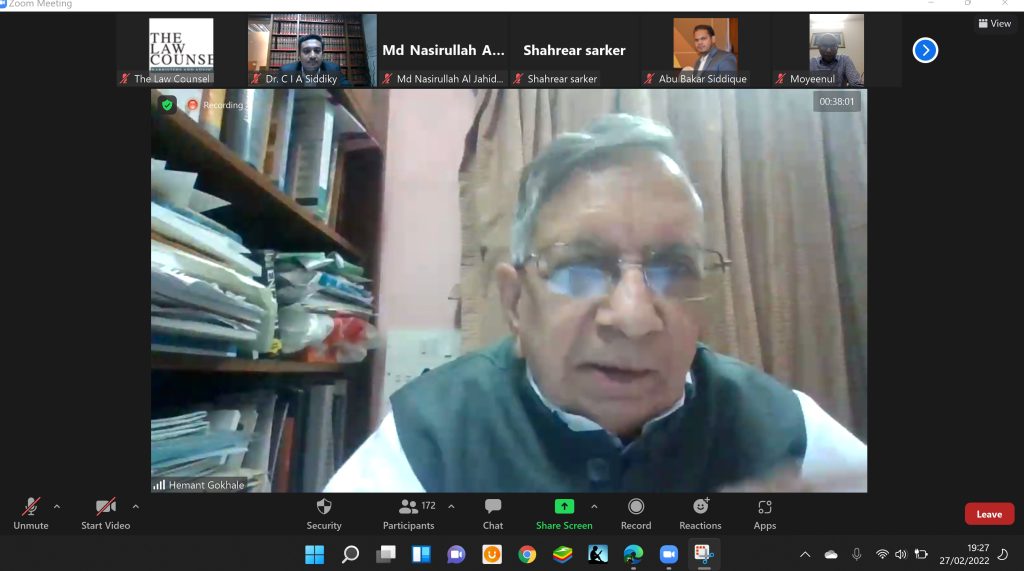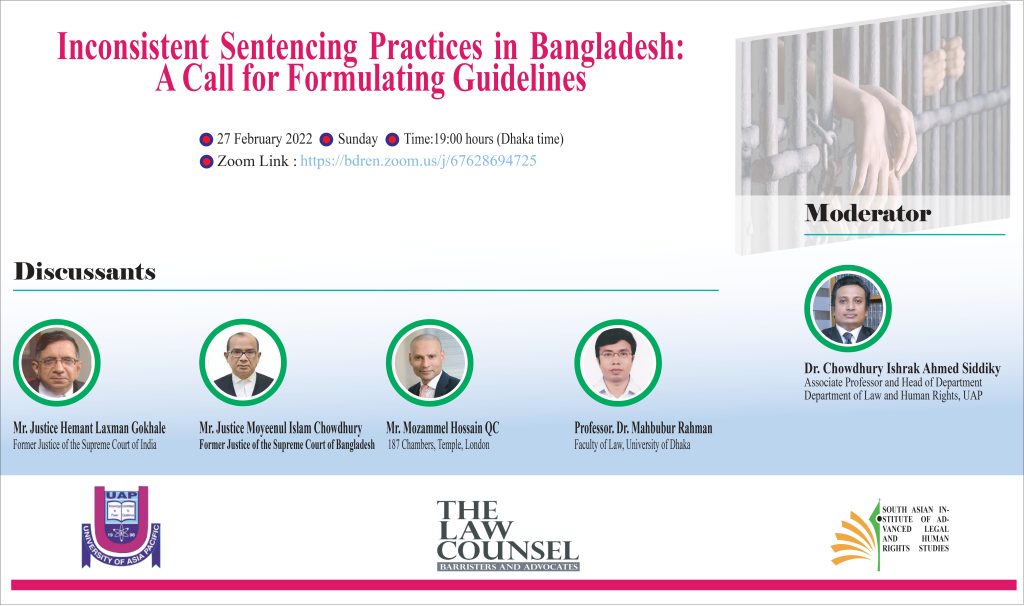
Today (on 27.02.2022), an international Webinar titled “Inconsistent Sentencing Practices in Bangladesh: A Call for Formulating Guidelines” was jointly organised by the University of Asia Pacific, The Law Counsel and SAILS starting at 7 pm (Dhaka time) on the necessity of sentencing guidelines in the criminal justice system of Bangladesh.
The Webinar was moderated by Dr. Chowdhury Ishrak Ahmed Siddiky, Barrister-at-Law and an Associate Professor and the Head of the Department of the Department of Law and Human Rights of University of Asia Pacific.
Four distinguished discussants namely Mr. Justice Hemant Laxman Gokhale, a former Justice of the Supreme Court of India, Mr. Justice Justice Moyeenul Islam Chowdhury, a former Justice of the Supreme Court of Bangladesh, Mr. Mozammel Hossain QC, a criminal QC practicing in the jurisdiction of England and Wales and Professor Dr. Mahbubur Rahman, a Professor of Law at the University of Dhaka spoke at the event. All four discussants offered their answers during the Question-and-Answer Session (Q&A Session) at the of the Webinar.
The Webinar commenced with a paper presented by Faran Md Aaraf, Barrister-at-law and Lecturer of University of Asia Pacific on the inconsistencies in sentencing practices and need for a sentencing guideline. He demonstrated the causes of inconsistencies, advocated for a consistent approach in sentencing practices and proposed a sentencing hearing stage in the Criminal justice system of Bangladesh.
Mr Justice Gokhale, during his discussion, stated that the appeals process may mitigate inconsistencies in sentencing. From the Indian experience, Justice Gokhale suggested that there should be a separate sentencing hearing. He noted that both Bangladesh and India should have separate sentencing guidelines.
Mr. Justice Chowdhury, during the course of his discussion, stated that wide discretion has been given to sentencing judges as a result of which sentencing varies from judge to judge. The principle of equality before treatment demands that people committing similar crimes should be sentenced similarly, which conflicts with the notion of individuation of justice, and the sentencing judge has to balance these two principles during the sentencing hearing.
Mr. Mozammel Hossain QC stated that the absence of a definitive Sentencing Guidelines has contributed to a flawed criminal justice system in Bangladesh. He gave a number of practical examples about how the sentencing process works in the jurisdiction of England and Wales. The absence of a sentencing guideline has also contributed to backlogs, he said. Mr. Hossain QC added that if there are guidelines, there would be greater certainty as to the sentence that would be passed.
Professor Dr. Mahbubur Rahman has advocated the use of Brady reports and pre-sentencing reports.
The VC of UAP Prof Dr. Qumrul Ahsan and Barrister Ehsan Siddiq, Partner of The Law Counsel also attended the event.




